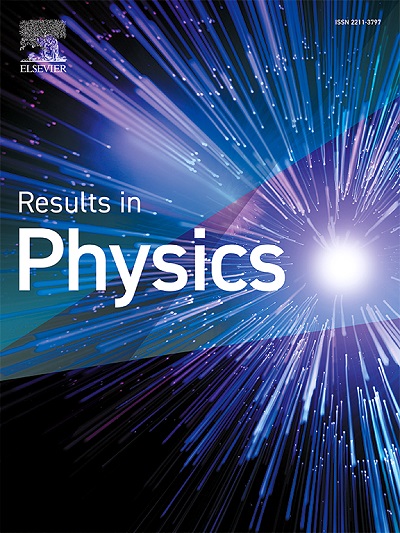非马尔可夫性:时间和能量域合成的必要和充分准则
IF 4.6
2区 物理与天体物理
Q2 MATERIALS SCIENCE, MULTIDISCIPLINARY
引用次数: 0
摘要
给定一个开放的量子力学过程,物理系统所遵循的退相干是否是非马尔可夫的(以及在多大程度上)是至关重要的,因为它定义了可以对物理可观测物做出的预测。此外,时间上的非局部相关是非马尔可夫动力学的典型影响。由于在量子力学中,时间和能量是典型的共轭变量,因此很自然地期望在时间上的这些相关性也可以在能量域中观察到。本文利用复合或可分原理来观察复相空间中Wigner传播函数的记忆效应。在这个意义上,我们证明了系统与槽的突然耦合有助于非马尔可夫效应,并且我们表明了实验可及性的约束。此外,我们还在能量域中加入了足够和必要的判据,使其在时间域中构成。最后,我们指出这些结果适用于基于Weiskopf模型的辐射猝灭、原子电离、分子内弛豫和光子浴耦合。本文章由计算机程序翻译,如有差异,请以英文原文为准。
Non-Markovianity: Necessary and sufficient criteria for composition in time and energy domains
Given an open quantum mechanical process, whether the decoherence followed by a physical system is non-Markovian (and to what extent) is of the utmost importance since it defines the predictions that can be made for the physical observables. Furthermore, non-local correlations in time are the quintessential effect of Non-Markovian dynamics. Since in quantum mechanics, time and energy are canonical conjugate variables, it is natural to expect that those correlations in time can also be observed in the energy domain. In this paper, we resort to the principle of composition or divisibility to observe memory effects in the Wigner propagation function in complex phase spaces. In this sense, we show that the sudden coupling of the system to the bath contributes to non-Markovian effects, and we show the constraints for experimental accessibility. Furthermore, we incorporate sufficient and necessary criteria in the energy domain to compose it in the time domain. Finally, we indicate that the results are applicable to radiative quenching, ionization of atoms, intramolecular relaxation, and photon bath coupling based on the Weiskopf model.
求助全文
通过发布文献求助,成功后即可免费获取论文全文。
去求助
来源期刊

Results in Physics
MATERIALS SCIENCE, MULTIDISCIPLINARYPHYSIC-PHYSICS, MULTIDISCIPLINARY
CiteScore
8.70
自引率
9.40%
发文量
754
审稿时长
50 days
期刊介绍:
Results in Physics is an open access journal offering authors the opportunity to publish in all fundamental and interdisciplinary areas of physics, materials science, and applied physics. Papers of a theoretical, computational, and experimental nature are all welcome. Results in Physics accepts papers that are scientifically sound, technically correct and provide valuable new knowledge to the physics community. Topics such as three-dimensional flow and magnetohydrodynamics are not within the scope of Results in Physics.
Results in Physics welcomes three types of papers:
1. Full research papers
2. Microarticles: very short papers, no longer than two pages. They may consist of a single, but well-described piece of information, such as:
- Data and/or a plot plus a description
- Description of a new method or instrumentation
- Negative results
- Concept or design study
3. Letters to the Editor: Letters discussing a recent article published in Results in Physics are welcome. These are objective, constructive, or educational critiques of papers published in Results in Physics. Accepted letters will be sent to the author of the original paper for a response. Each letter and response is published together. Letters should be received within 8 weeks of the article''s publication. They should not exceed 750 words of text and 10 references.
 求助内容:
求助内容: 应助结果提醒方式:
应助结果提醒方式:


